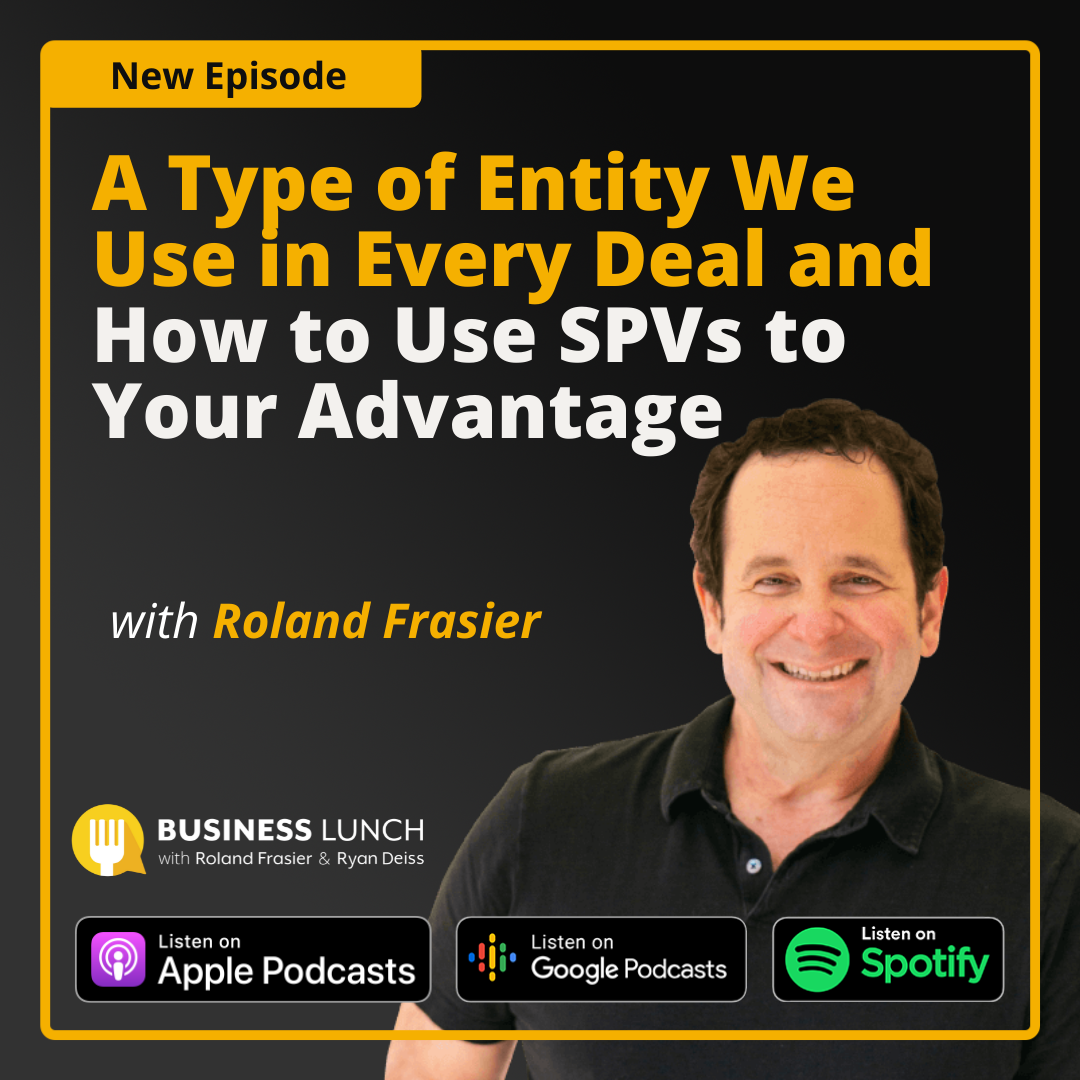SPVs are really good things, yet nobody’s talking about them. Why not?
In today’s bite-size episode, host Roland Frasier makes the case for SPVs (Special Purpose Vehicles). A year or so ago, Roland was interviewing GaryVEE (Gary Vaynerchuk) and asked him, “What do you know now that you wish you had known when you first got started?”
And Gary gave one of the best answers Roland has ever gotten. He said he could have saved himself tens of millions of dollars if he had known about SPVs when he was younger.
Listen in to find out how you can use SPVs to your advantage in every business deal.
Why You Should Use an SPV
An SPV is a subsidiary company that is formed to undertake a specific business activity. For whatever reason, not a lot of people are talking about SPVs. They sometimes talk about forming companies to protect you from liabilities. We all know it’s good not to have a sole proprietorship or partnership where the owners have unlimited personal liability. But a lot of people don’t know about SPVs.
In fact, if you go down to the place that forms companies, like the Secretary of State, and you say, “I need you to form an SPV for me,” they’ll look at you like you’re nuts. There is no SPV that you can form. SPV is the use to which you put the entity that you form.
Roland is a big proponent of limited liability entities. With an SPV, you’re using a limited liability entity for the specific purpose of what you’re doing. You’re acquiring a company, doing a consulting deal, or going into a new territory. That can be a good time to use an SPV. It just protects you, your personal assets, and your business assets from any liability that comes out of the deal.
Some Examples of When to Use an SPV
When Roland is looking to do any kind of deal, he does a limited liability entity for that deal. The fact that he’s using it for this special occasion, this transaction, that makes it an SPV. It’s really just a fancy set of words attorneys use to say “this company, this corporation, this LLC is going to be used to do this one thing.” That one thing might be broad or very specific.
Let’s say you’re acquiring a company. You form an SPV to acquire the assets of the company. As long as you’re paying the fair market value, then generally you’re not liable for the debts of the company you’re buying them from. This is assuming there’s not a direct lien against the asset. Then you won’t have successor liability.
Another situation would be that you’re using an SPV to acquire something, and it’s going to have seller financing or some kind of debt. Instead of you personally taking on the debt, the SPV will take on the debt. You won’t lose your house or have them garnish your wages or lose your investments or other assets to satisfy a claim.
As far as when you should do this, it makes sense whenever you’re doing anything that potentially creates business or personal liability exposure for you. It’s really just a good habit every time you do a deal. You might have a holding company that owns several SPVs, but you really want to separate one for each new deal or partnership.
How much does it cost? Just the cost to form an entity—maybe $1k to $2k. There’s a company called Prime Corporate Services that does it here in the U.S.
Take it from Roland and GaryVee and get an SPV formed whenever you’re doing a deal.
LINKS AND RESOURCES:
OUR PARTNERS:
- 7 Steps to Scalable workbook
- Get a free proposal from Conversion Fanatics
- Get 3% cash back on your ad spend with AdCard
- Get my book, Zero Down, FREE


